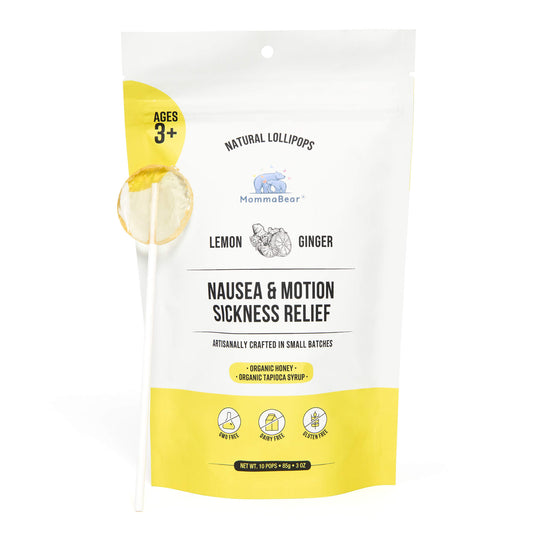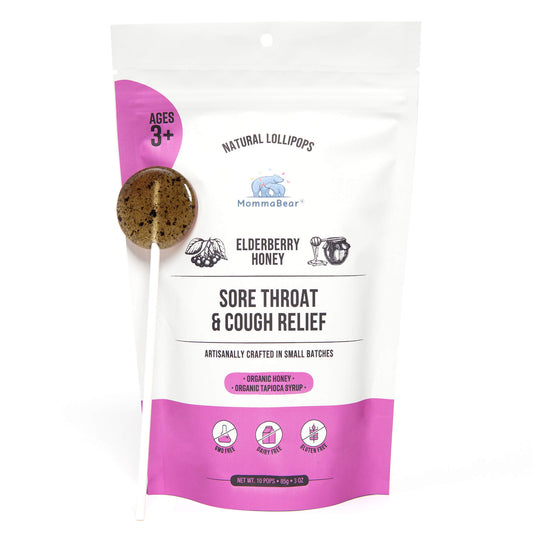Motion sickness can be a significant concern for those embarking on a cruise. It can detract from the enjoyment of beautiful ocean views and exciting activities. Fortunately, there are various medicines and remedies available that can help prevent and alleviate the symptoms of motion sickness. In this article, we will explore the nature of motion sickness, the types of medicines available, guidance on usage, potential side effects, and alternative methods to manage this condition.
Understanding Motion Sickness
Motion sickness is a common phenomenon that can affect anyone, regardless of age or gender. It arises when there is a disconnect between what the eyes perceive and what the inner ear senses. This discrepancy can lead to a range of uncomfortable symptoms.
What is Motion Sickness?
At its core, motion sickness is a complex reaction to different types of motion, particularly when the individual is in a moving vehicle, such as a cruise ship. The brain receives conflicting signals regarding balance and movement from the eyes, inner ear, and deeper body parts. This confusion can result in symptoms such as nausea, dizziness, sweating, and vomiting.
Causes of Motion Sickness on Cruises
Several factors contribute to the onset of motion sickness, particularly on cruises. The ocean's waves can cause the ship to sway, creating sensations that the brain may interpret incorrectly. Other contributors include:
-
Weather conditions, such as rough seas.
-
The size and stability of the vessel.
-
Positioning on the ship (e.g., cabin location).
-
The duration of travel and individual susceptibility to motion sickness.
Understanding these causes is vital for preventing and managing motion sickness effectively. Additionally, it is worth noting that the psychological aspect can also play a significant role in how individuals experience motion sickness. Anxiety about getting sick can exacerbate symptoms, creating a vicious cycle that makes it even harder to enjoy the cruise experience. For some, simply knowing they are on a moving vessel can trigger feelings of unease, leading to increased sensitivity to motion.
Furthermore, the type of activities one engages in while on board can influence the likelihood of experiencing motion sickness. For example, reading a book or staring at a screen can worsen symptoms, as these activities can intensify the disconnect between visual input and physical sensations. In contrast, focusing on the horizon or engaging in light physical activity, such as walking on the deck, can help recalibrate the brain's perception of motion and alleviate discomfort. Understanding these nuances can empower travelers to take proactive steps in managing their experiences while cruising.
Types of Motion Sickness Medicines
When it comes to alleviating motion sickness, there are two primary categories of medicines: over-the-counter and prescription medications. Each has its pros and cons, depending on the individual’s specific needs and health conditions.
Over-the-Counter Medicines
Over-the-counter (OTC) medicines are often the first line of defense against motion sickness. They are readily accessible and can be used by most adults and children. Common OTC options include:
-
Diphenhydramine (Benadryl): An antihistamine that reduces symptoms of nausea and dizziness.
-
Dimenhydrinate (Dramamine): Specifically designed for motion sickness, it is effective in preventing nausea.
-
Meclizine (Bonine): Another antihistamine, suitable for prevention and relief of motion sickness symptoms.
These medications may cause drowsiness, so it’s important to understand how your body reacts before engaging in activities requiring alertness. Additionally, some individuals may experience dry mouth or blurred vision as side effects, which can be bothersome. Therefore, it’s advisable to consult a healthcare professional if you have any pre-existing conditions or are taking other medications, as interactions can occur.
Prescription Medicines
In cases where OTC options are insufficient, healthcare providers may prescribe stronger medications. Some commonly prescribed options include:
-
Scopolamine: Available as a patch, this drug is effective for the long-term prevention of motion sickness and is applied behind the ear.
-
Promethazine: Another potent antihistamine that can be prescribed for severe symptoms and comes in various forms, including tablets and injections.
Prescription medicines usually have a more marked effect and are particularly suited for those who experience chronic or severe motion sickness. For instance, the scopolamine patch is often recommended for individuals who are planning to travel on long journeys, such as cruises or road trips, as it provides continuous relief for up to three days. Moreover, healthcare providers may suggest lifestyle modifications alongside medication, such as staying hydrated, avoiding heavy meals before travel, and choosing seats that minimize motion, like sitting in the front of a vehicle or near the wings of an airplane. These strategies can enhance the effectiveness of the prescribed treatments and contribute to a more comfortable travel experience.
How to Use Motion Sickness Medicines
Understanding how to properly use motion sickness medications can significantly impact their effectiveness. Here are some important considerations to keep in mind.
Precautions Before Taking Medicines
Before using any motion sickness medication, it is advisable to consult with a healthcare provider. Considerations include:
-
Prior medical conditions (e.g., glaucoma or prostate issues).
-
Possible interactions with other medications.
-
Age and overall health status, as children and the elderly may react differently.
Taking these precautions can help avoid complications and ensure the chosen remedy is suitable. Additionally, it is important to inform your healthcare provider about any allergies you may have, as some motion sickness medications can cause allergic reactions in sensitive individuals. Furthermore, understanding the specific triggers of your motion sickness—be it car rides, airplane travel, or boat excursions—can also aid in selecting the most effective medication.
Proper Dosage and Timing
The dosage and timing of motion sickness medicines are crucial for their effectiveness. Here are some general guidelines:
-
Over-the-counter antihistamines are typically taken one hour before travel.
-
Prescription patches should be applied several hours before embarkation.
-
Follow the prescribed dosage meticulously to avoid adverse effects.
Timing the administration correctly will optimize the medication's effectiveness, allowing you to enjoy your cruise without discomfort. It's also worth noting that some individuals may experience drowsiness as a side effect of certain medications, particularly antihistamines. Therefore, if you plan to drive or operate machinery after taking these medications, it is crucial to assess how you feel first. Additionally, maintaining hydration and consuming light snacks can further help mitigate symptoms, as an empty stomach may exacerbate feelings of nausea during travel.
Side Effects of Motion Sickness Medicines
Like all medications, those used for motion sickness can cause side effects. Awareness of these is important for making informed decisions about treatment.
Common Side Effects
The most frequently reported side effects of motion sickness medicines include:
-
Drowsiness or fatigue.
-
Dry mouth.
-
Dizziness.
-
Blurred vision.
While these effects can be bothersome, they are generally not severe and often diminish as your body adjusts to the medication. It's worth noting that drowsiness can impact your ability to drive or operate heavy machinery, so it's advisable to avoid such activities until you know how the medication affects you. Additionally, staying hydrated can help alleviate dry mouth, which is a common complaint among users of these medications.
Serious Side Effects
In rare cases, motion sickness medications can lead to more serious side effects, such as:
-
Severe allergic reactions (e.g., rash, itching, difficulty breathing).
-
Confusion or agitation, particularly in elderly patients.
-
Heart palpitations or any unusual heart rhythms.
If any of these serious side effects occur, seek medical attention immediately. It’s also important to monitor any changes in your health after starting a new medication. For instance, elderly patients may be more susceptible to confusion or agitation due to the sedative effects of certain motion sickness drugs, which can exacerbate underlying conditions. Regular check-ins with a healthcare provider can help manage these risks effectively.
Non-Medical Alternatives for Motion Sickness
For some individuals, non-medical alternatives may offer effective prevention and relief from motion sickness. These methods can be beneficial for those who prefer holistic approaches, allowing them to enjoy their travel experiences without the side effects often associated with pharmaceutical treatments.
Natural Remedies
Several natural remedies are reputed to help manage motion sickness, including:
-
Ginger: Whether in the form of tea, candy, or capsules, ginger is known for its anti-nausea properties. It has been used for centuries in various cultures, not just for motion sickness but also for digestive issues, making it a versatile addition to your travel kit.
-
Peppermint: Sipping peppermint tea or sucking on peppermint candies may provide relief. The soothing aroma and flavor of peppermint can also help calm the stomach and reduce feelings of nausea, making it a popular choice among travelers.
-
Acupressure: Applying pressure to specific points, such as the P6 point on the wrist, can help alleviate symptoms. This ancient technique is based on the principles of Traditional Chinese Medicine and is thought to work by balancing the body's energy flow, providing a natural way to combat discomfort.
These remedies may be used alone or in conjunction with medications to enhance their effectiveness. Additionally, many of these natural options are easily accessible and can be found in local health stores or even prepared at home, making them convenient for those on the go.
Behavioral Techniques
In addition to natural remedies, certain behavioral techniques may help mitigate motion sickness. These include:
-
Focusing on the horizon to stabilize visual perception. This technique helps the brain reconcile the conflicting signals it receives from the inner ear and eyes, reducing the sensation of motion.
-
Choosing a stable position on the ship, such as midship, where motion is minimized. This strategic positioning can make a significant difference in how one experiences the movement of the vessel.
-
Practicing deep breathing exercises to reduce anxiety and nausea. Simple techniques, such as inhaling deeply through the nose and exhaling slowly through the mouth, can help calm the nervous system and ease discomfort.
Incorporating these strategies can provide a comprehensive approach to motion sickness management on cruises. Moreover, engaging in light activities, such as reading or listening to music, can distract the mind from the sensations of motion, further alleviating symptoms. It's also beneficial to stay hydrated and eat light, easily digestible meals before and during travel to help maintain comfort.
In addition to the various medications and remedies discussed, incorporating natural solutions can enhance your cruise experience and help combat motion sickness. At MommaBear Organics, we understand the importance of holistic health and well-being during travel. Our range of natural products, including ginger, honey, and lemon options, can complement your efforts to manage motion sickness effectively. By blending traditional remedies with thoughtful lifestyle choices, you can navigate your cruise with confidence and enjoy each moment on the open sea. Embrace a smoother sailing experience and make the most of your adventure!








